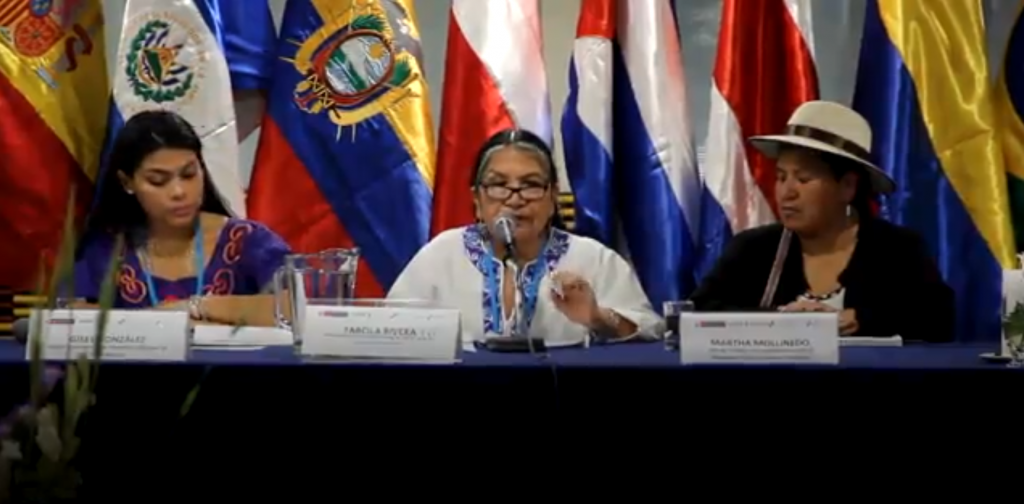Background and objective
Governmental decision makers need to have adequate information on practices, ancestral values and traditional knowledge to be used as efficient governance tools that can be added to their own management techniques and thus strengthen the intercultural governance framework. In this process, it is essential to identify the ancestral values in the indigenous peoples’ models of governance that have sustained their native organizational structures for time immemorial. These experiences will generate dialogue within the institutionalism of the State and strengthen intercultural governance, in particular in violent and post-conflict contexts.
The proposal encourages dialogue, exchange and articulation between governments, local leaders and authorities, communities and indigenous organizations of Latin America and the Caribbean, to recover experiences based on ancestral practices that favor concertation processes in governance. Dialogues will be organized in two sub regions with a focus in countries that had lived and generated peace process teachings. One in Central America, based in Guatemala, with the participation of indigenous leaders and authorities and the governments of Belize, Costa Rica, Guatemala, El Salvador, Honduras, Nicaragua and Panama. And a second one in the Andean/Amazon region, based in Colombia, with the participation of indigenous leaders, authorities and governments of Bolivia, Chile, Ecuador and Peru.
Local partner information
The Fund for the Development of the Indigenous People of Latin America and the Caribbean (FILAC), is an intergovernmental organization created during the Ibero-American Chiefs of State and Governments Summit celebrated in Madrid, Spain, on July 24, 1992. Its goal is to support self-development processes of the people, communities and indigenous organizations of the region. FILAC is an organism of parity composition, integrated by delegates accredited by the Government of each member State; and by delegates of indigenous peoples of each regional member State.

